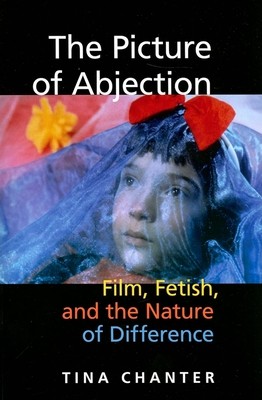
- We will send in 10–14 business days.
- Author: Tina Chanter
- Publisher: Indiana University Press
- ISBN-10: 0253219183
- ISBN-13: 9780253219183
- Format: 15.8 x 23.5 x 2.7 cm, softcover
- Language: English
- SAVE -10% with code: EXTRA
Reviews
Description
Tina Chanter resolves a fundamental problem in film theory by negotiating a middle path between "gaze theory" approaches to film and spectator studies or cultural theory approaches that emphasize the position of the viewer and thereby take account of race, class, gender, and sexuality. Chanter argues that abjection is the unthought ground of fetishistic theories. If the feminine has been the privileged excluded other of psychoanalytic theory, fueled by the myth of castration and the logic of disavowal, when fetishism is taken up by race theory, or cultural theory, the multiple and fluid registers of abjection are obscured. By mobilizing a theory of abjection, the book shows how the appeal to phallic, fetishistic theories continues to reify the hegemonic categories of race, class, sexuality, and gender, as if they stood as self-evident categories.
EXTRA 10 % discount with code: EXTRA
The promotion ends in 20d.20:22:21
The discount code is valid when purchasing from 10 €. Discounts do not stack.
- Author: Tina Chanter
- Publisher: Indiana University Press
- ISBN-10: 0253219183
- ISBN-13: 9780253219183
- Format: 15.8 x 23.5 x 2.7 cm, softcover
- Language: English English
Tina Chanter resolves a fundamental problem in film theory by negotiating a middle path between "gaze theory" approaches to film and spectator studies or cultural theory approaches that emphasize the position of the viewer and thereby take account of race, class, gender, and sexuality. Chanter argues that abjection is the unthought ground of fetishistic theories. If the feminine has been the privileged excluded other of psychoanalytic theory, fueled by the myth of castration and the logic of disavowal, when fetishism is taken up by race theory, or cultural theory, the multiple and fluid registers of abjection are obscured. By mobilizing a theory of abjection, the book shows how the appeal to phallic, fetishistic theories continues to reify the hegemonic categories of race, class, sexuality, and gender, as if they stood as self-evident categories.


Reviews